- #20233 (no title)
- About Us
- Advisory Board
- Annual Report 2019
- Careers
- Contact
- Contribute to Swades COVID-19 Relief & Recovery Fund
- COVID19 Relief
- Donate for Cardiac Surgeries of Children
- Donation
- Donation Confirmation
- Donation Failed
- Donation Unsuccessful
- Donation Unsuccessful Dream Village
- Donation Unsuccessful Dream Village FOS
- Donation Unsuccessful Dream Village WEB
- Donation Unsuccessful Ear
- Donation Unsuccessful Ear FOS
- Donation Unsuccessful Ear WEB
- Donation Unsuccessful Eye
- Donation Unsuccessful Eye FOS
- Donation Unsuccessful Eye WEB
- Donation Unsuccessful Heart
- Donation Unsuccessful Heart FOS
- Donation Unsuccessful Heart WEB
- Donor Dashboard
- Economic Development
- Educations
- freelance
- Health & Nutrition
- Home (01-06-2023)
- Home (current)
- Impact
- Letter
- News & Media
- Our Believers
- Our Believers(old)
- Our Team
- PopUp Template
- Privacy Policy
- Refund Policy
- Reports & Financials
- Scholarship Campaign
- Scholarship Campaign Razorpay
- Scholarship Campaign Razorpay Recurring
- SSE
- Support families impacted by COVID-19
- Swa Se Bane Des
- Swa Se Bane Des 2
- Swa Se Bane Des New
- Swa Se Bane Des Old Image 2
- Swa Se Bane Des Pledge
- Swa Se Bane Des Pledge Old Image
- Swades Dream Village
- Swades Dream Village Old
- Swades Dream Villages
- Swades Ear Treatment
- Swades Ear Treatment FOS
- Swades Ear Treatment WEB
- Swades Eye Treatment
- Swades Eye Treatment FOS
- Swades Eye Treatment WEB
- Swades Fights Malnutrition
- Swades Fights Malnutrition
- Swades Heart Treatment
- Swades Heart Treatment FOS
- Swades Heart Treatment WEB
- Swades Heroes
- Swades Stories
- Terms & Conditions
- Test
- Thank you
- Thanks for subscribing
- Timeline
- Volunteer
- Volunteer
- Water & Sanitation

Creating joyful, empowering education which enhances livelihood options, creating socially and environmentally conscious citizens who are catalysts for change.
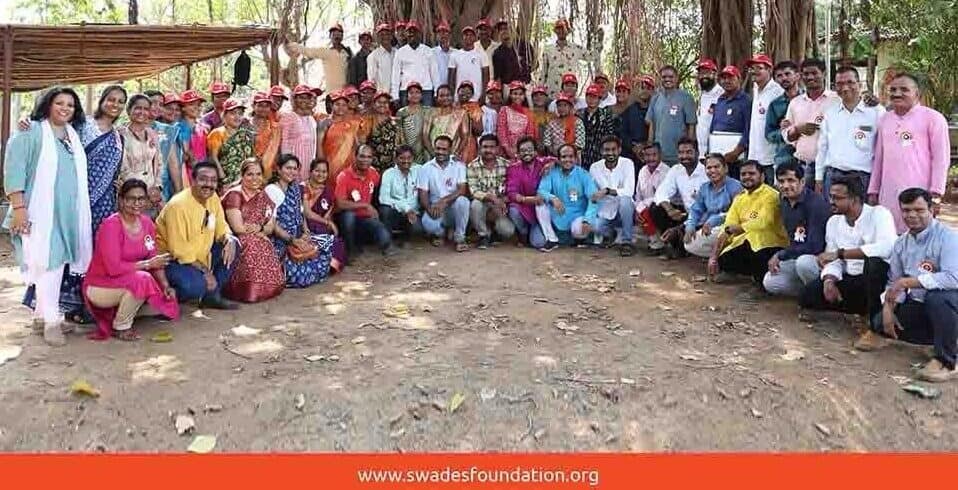
Education
The Gyan Mitra Initiative: Building a Sustainable Knowledge Ecosystem for Community Empowerment
The Gyan Mitra initiative marks a significant milestone in our mission. It represents a transformative approach to reshaping education and community empowerment in India, integrating sustainability as its core principle. By equipping rural communities with tools, knowledge, and opportunities, the Gyan Mitra initiative builds pathways for lasting change.

Economic Development
Empowering Rural Communities: The Transformative Role of Solar Energy
In the quiet rural parts of India, far from the bustling cities and urban landscapes, lies a world of opportunity. These rural areas, often overlooked in discussions about energy access and sustainability, are experiencing a revolution powered by the sun. Solar energy is not just a technological marvel; it's a lifeline for millions of people living in remote villages and challenging terrains across the country.

Health & Nutrition
Defeating Cancer: A Comprehensive Guide to Prevention and Treatment
The World Health Assembly Resolution, “Cancer prevention and control in the context of an integrated approach”, was adopted by 194 member states in 2017. It drew attention to the increasing burden and economic impact of cancer, estimated to cost US$1·16 trillion a year, and for which there are scant resources.

Education
Karishma Zore
Karishma stands outside her home in Adiwasiwadi with the goats from her goat farm. Karishma Raju Zore is a class 12 student in Mangaon’s Adiwasiwadi – an isolated tribal hamlet. Karishma’s school is about 4kms away from her home. Coming from a single parent household with very limited means, the young girl walks the distance every day to make sure she doesn’t miss her lessons.
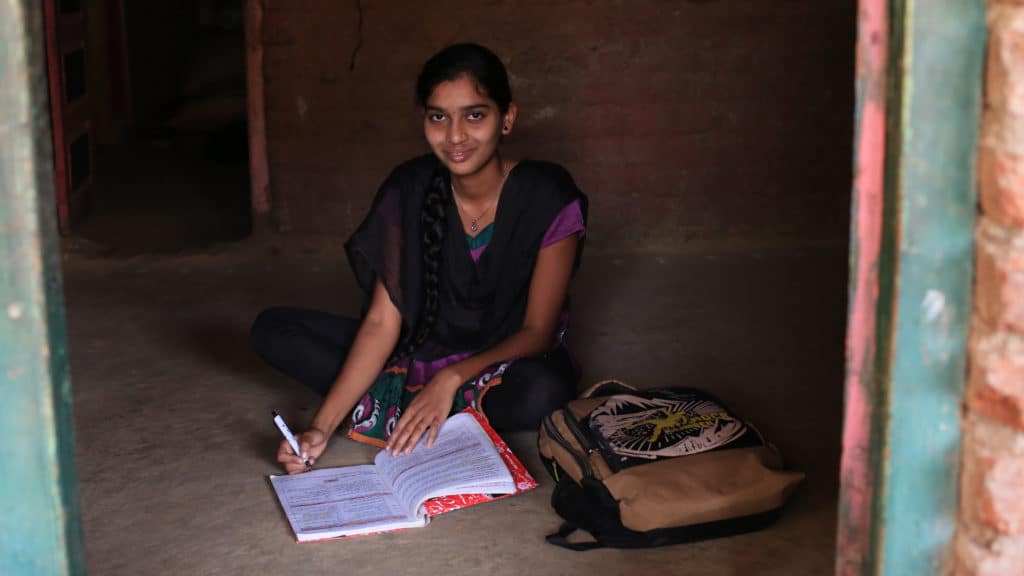
Education
Real development is to invest in women’s education.
Archana Wadhaval, an introvert girl but strong with her aspiration to become a banker. She always performed well in her studies until grade X. Archana comes from a delightful family, where her father is a farmer who could only support the fundamental needs of family and had already struggled to fund the education of elder boy till grade XII.
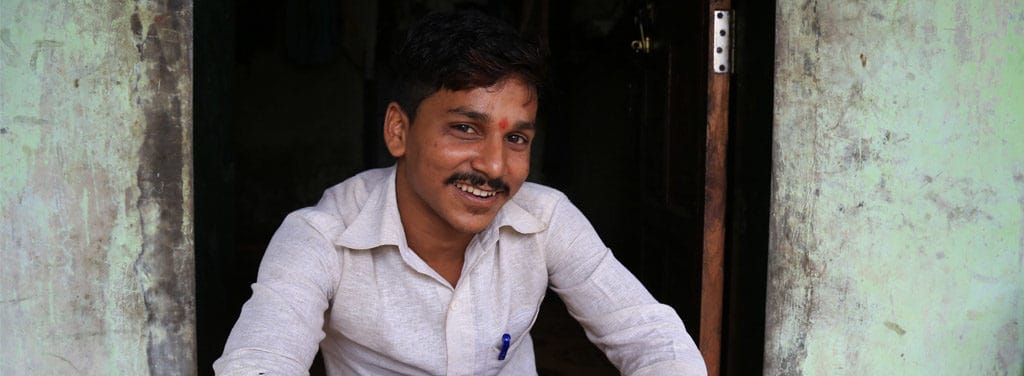
Education
Namdev Buwaji
Scholarship adds wings to Namdev’s aspiration!! Namdev Buwaji, a 16-year old boy studying in STD X had to quit education due to poor financial condition. His father, a fisherman was struggling to make ends meet and paying for his son’s education was never on his list of priorities. To support his family, Namdev too started working as a waiter in a college canteen at Tala and accepted that as his fate.
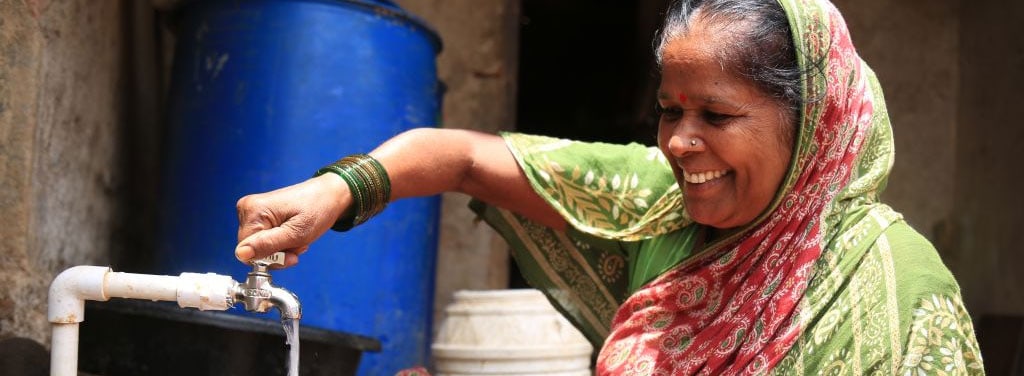
Water & Sanitation
Sagibai Maruti Mahable
Water gives #Smile, #Time and #Health. Behind this smile, there has been a lot of struggle and pain. Sagibai Maruti Mahable, living in Chachkond (in rural Raigad) has been spending about 10 – 12 hours daily fetching water for her household needs. This everyday tussle, since decades, was not only the plight of Sagibai but for 22 other households in Chachkond.
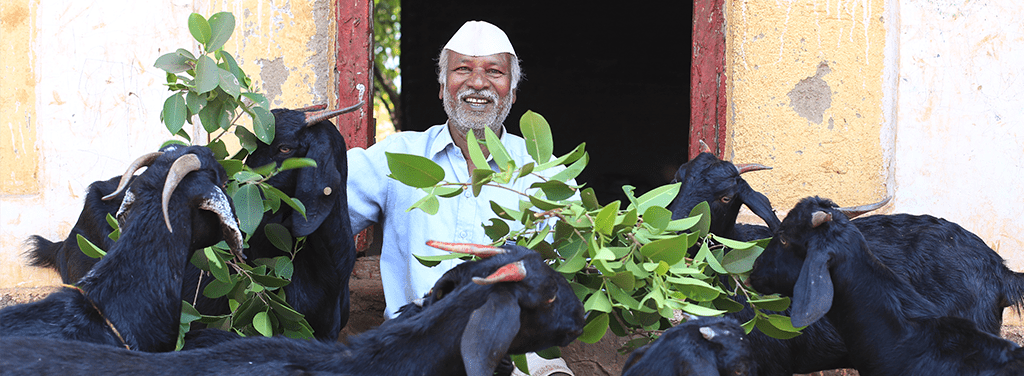
Economic Development
Narayan Daulat Waghmare
Narayan Daulat Waghmare comes from a tribal village and lived a very poor life doing odd labour work like fishing, etc. He made a meagre INR 1,500 – 2,000 per month. In the year 2017, he was introduced to our goat farming program and bought 1 unit of three (1 goat & 2 kids) goats. The training given to Narayan on goat farming worked incredibly as he managed to do well in the first year and earned a total income of INR 30,000.
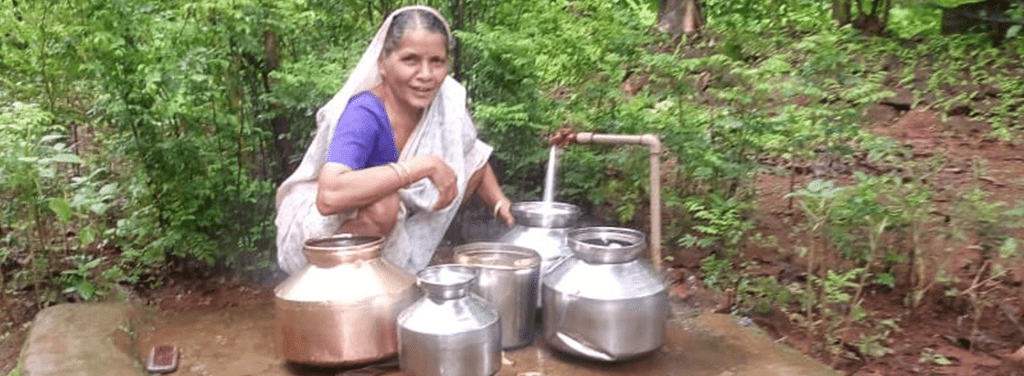
Water & Sanitation
Gavadi
Gavadi hamlet located in Kumbharde Gram Panchayat of Mahad block isn’t the most accessible hamlet in the block. Due to its remote location on the hill, traveling to and fro to the town was a big problem. Though this hamlet had an existing open well with tap connection at home - its pipelines were severely damaged and required heavy maintenance. In 2015-16, Swades Foundation built a new pump and liftline from the source to fulfill the hamlet’s water requirements.
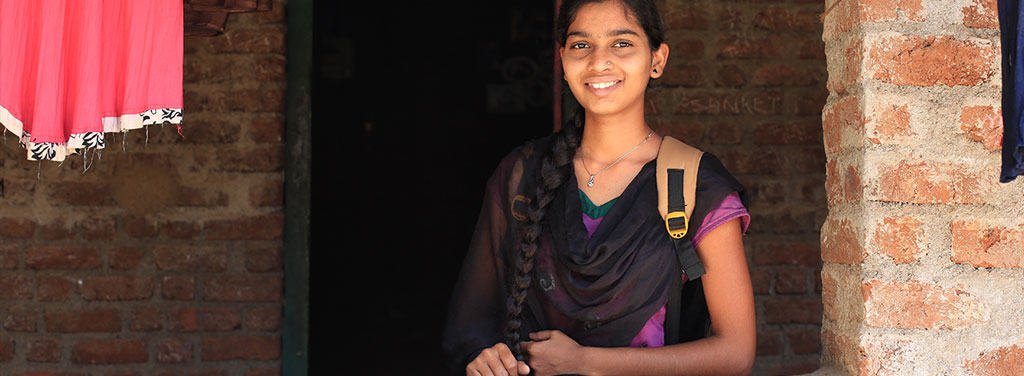
Education
Archana Wadhaval
Archana Wadhaval is a shy but bright girl who excels at studies. Her father, a farmer, earns a small income, just enough to support basic needs of his family. Archana’s elder brother completed his Grade XII and became an electrician but for Archana pursuing college post Grade X seemed difficult due to financial crunch. Swades Foundation through its mass scholarship decided to step in and support Archana with part fees for academics and logistics.
